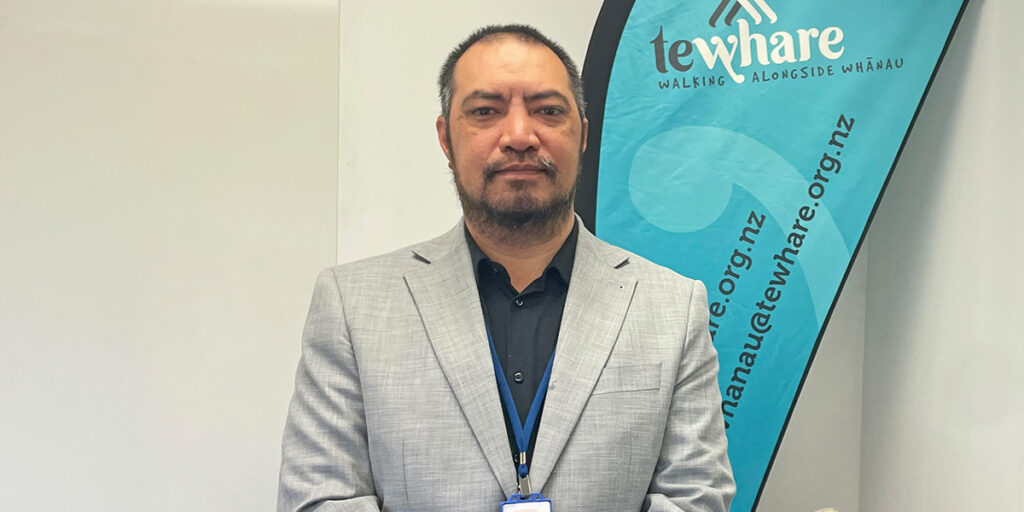“I want to help brothers like me to be better.”

We are proud to share Richmond’s story of transformation, which demonstrates how our mahi has a powerful ripple effect that can impact the whole whānau and other tāne too.
Born and raised in Melbourne, Richmond says he had a stable childhood at first. “My childhood was happy, despite my parents separating. Everything was fine,” he recalls. However, as a teenager he became involved in drugs and organised crime, and it wasn’t long before he was skipping school and serving as an apprentice in the underworld. “I picked up many new skills, including how to sell drugs. There was a lot of money around and I was hooked on the idea of wealth,” he reflects.
Things changed again for Richmond when his foster care father was shot. “I took over the business and started working for myself – I was 16 years old at the time.” Richmond was a heavy drug user by then and starting to become violent, particularly with his female partners. “I had a lot of money, was using heavily and had a lot of pent-up anger over issues with my mother,” he says. “I wasn’t in a good place.”
Things went from bad to worse and Richmond decided to return to live with his mother in Rotorua. However, his behaviour towards her resulted in him being kicked out. “My plan was to go back to Australia, but the girl I was seeing got pregnant, so I decided to stick around,” he reports.
“You know deep down that you can’t keep going”
Living in Auckland by then, Richmond and his partner had three children together, but their life was dominated by drugs and violence. “It was not a good situation for any of us. We weren’t fit to be parents, and the children were not cared for as they should have been. They had a far worse childhood than I did,” he says. Eventually his partner left with the children, saying that she couldn’t live with the level of violence.
During the intervening years, Richmond says there were lots of moments when he thought of quitting. “You know deep down that you can’t keep going and that if you do, something major is going to happen,” he says. For him, the turning point was when he met his current partner. “She wasn’t one of those women who hung around to get free drugs and I liked that.”
Building a cleaner, safer life together
Still together today with one toddler and another on the way, the couple decided to become drug-free. “Walking that journey together has made all the difference. We cleaned up the house, got rid of everything and moved – you can’t be clean and stay in the hood.”
“We’ve done over 15 programmes now, which might seem like a lot, but it’s important to keep on it. Change isn’t easy and you need that on-going support,” Richmond explains. For him, the Non-violence Behaviour Change programme at Te Whare has been a standout. “Bruce was fantastic – the way he developed a warm, inviting and confidential space was awesome. Being able to share your deepest feelings and trust that you won’t be judged is life changing.”
“Bruce’s programme really contributed to my healing journey. He was a great leader and the tāne on the programme would support each other and hold each other accountable. I remember once when one of the guys had a slip-up and one of the other guys said, “you’ve got to remember your breathing next time bro”. Another passed over his number and said, “call me straight away next time”. He created an environment where that could happen, and I am grateful.”
Richmond believes that Te Kawa o te Marae, our proprietary kaupapa Māori framework, is a game-changer. “After being brought up in Australia by a Māori mother, my connection with my culture was almost non-existent. It’s such a powerful combination – learning where I came from while also learning the skills to change my behaviour. Connecting to my whakapapa gave me an overwhelming sense of identity, which has made me stronger and more ready to change.”
Sharing the mātauranga with others
For Richmond and his partner, home life is now amazing. “We aren’t the Brady Bunch, but we have disagreements now, not domestics where the Police are on the doorstep. Life is really good. The last Te Whare programme I did was by far the most influential,” he says.
So influential, in fact, that Richmond has now started up 2ndChance, a new organisation that offers peer-to-peer support to others who have come from similar experiences, both in person and online.
“I want to change the face of peer-to-peer support so that people with lived experience, like me, are doing the mahi with bros who want to get out of the hood and live a different life. I want to help brothers like me to be better,” he says.
Mahi tika ana, Richmond on turning your life around and choosing to help other tāne change their lives for the better. This is what our mahi is all about!
